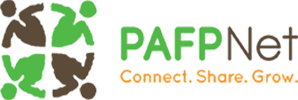As requested by the Ministry of Agriculture and Fisheries, Samoa, an agricultural knowledge management workshop and KM needs analysis was carried out in December 2015. The objectives of the workshop were to assist MAF to:
- Identify priority needs that entail systems, processes and staff needs that will support Samoa’s new Agriculture Sector Plan
- Provide a baseline plan for a Management Information System (MIS) within MAF for further support. MAF had already signed its intention to support a stronger MIS through current World Bank support.
- Identify strengths and gaps within its current agricultural information systems
- Formulate an inventory of current Samoa MAF knowledge products and services with an action plan to support MAF’s key KM priorities
The workshop involving 36 participants from the Ministry of Agriculture and Fisheries (MAF) including media and journalists from Samoa was carried out by the Pacific Community and a consultant from Netherlands.
The process entailed staff consultations, a structured scan process which took place prior to the workshop, baseline assessments and analysis and a sensitization workshop to raise understanding of the role of the ministry in the area of knowledge management. The first analysis of the knowledge management scan was carried out at the Ministry. The results presented (Annex A) are based on a survey filled out by 81 staff, which completed the entire survey. The analysis is considered confidential, and is property of MAF, Samoa. As a result of the first analysis, the workshop identified nine KM trends and seven KM areas, held elaborate discussions and identified three key KM priorities which were discussed for 2016-2017.
As a result of the intensive workshop, there were some key findings such as the following:
1) 11 database within the Ministry of Agriculture
2) A GIS mapping tool that projects agriculture and fisheries activities
3) Information hub which provides direct assistance to farmer issues
4) There is a need to invest in additional human, financial and technological resources and facilities within MAF that can support internal KM practices, external KM products and services
5) MAF uses emails, social media tools and dial up phones to communicate with their stakeholders
6) MAF produces leaflets, brochures, reports, banners and plan to promote visibility of MAF
7) MAF continues to facilitate awareness programs such as agriculture shows, open day to market products and services and promotes participatory rural advisories to identify issues from farmers




CONNECT WITH US